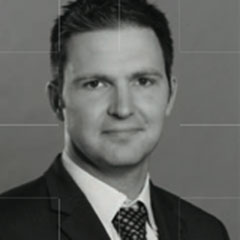The PV industry is constantly evolving and new ideas and innovations are a welcome source of change and regeneration. We grabbed five minutes with LG Solar’s Sven Armbrecht to ask him where the industry is headed…
PES: Can you explain a little about your background and how you ‘serve’ the solar industry?
Sven Armbrecht: LG Electronics is a technological innovator for electronic, information and communication products. The global group consists of four main business units – Home Entertainment, Mobile Communications, Home Appliance and Air Conditioning & Energy Solutions. Within LG Electronics, the solar division LG Solar is experiencing extensive growth, with high-quality solar cells, modules and solutions.
LG Solar’s target market is the domestic residential market and it is our aim to help building a sustainable future. In this respect LG proclaimed in 2008 its charter “Life’s good when it’s green”.
PES: What are the main challenges in the industry? How are you working to meet these challenges?
SA: According to a recent EuPD survey, there is still a big knowledge gap in he industry when it comes to incentive schemes and the benefits of solar modules, especially in terms of return on investment. Even though there are different pricing schemes and special tariffs available, the public still seems hesitant. It is our responsibility to advertise the existing opportunities in solar and keep incentive schemes predictable and stable.
LG Solar makes it a priority to be in constant contact with installers, customers and manufacturers to satisfy both their needs and demands. It’s also very important to us to educate the market about the benefits of switching to high quality modules with top levels of efficiency and output to achieve the best results. The solar industry needs to create trust in their products to be able and tackle the challenges that lie ahead.
But it’s not just consumers who are seeing the light. Earlier this year, Wal-Mart announced a group-wide eco initiative to
substitute its entire energy consumption with renewable alternatives before 2020. Partner this with the announcement of similar strategies by almost every single top 50 global company and we start to see the enormous impact solar is making worldwide.
Looking closer to home, however, grid capacity in 11kV and 33kV wires is now very scarce in southern England. Capacity still exists in high voltage 132kV lines, but connection costs are significantly higher and timelines longer. The added cost means that projects need to be much bigger (>50MW) to be economic. The increased expense and longer timelines also dramatically increase development risk, particularly relating to changes in Government policy.
PES: What are your thoughts about the state of the renewables market right now?
SA: The development of the renewables market in Europe is a true success story. To give you an example, over the last ten years, renewable energies have grown to constitute 25 per cent of the overall energy mix in Germany. In many European countries, we have already achieved grid parity due to massive cost reductions over the last couple of years.
However, if we want to achieve the goal set by the UN to limit global warming to less then 2°C, then we need to take ambitions to the next level. We need to find a way to significantly increase the use of renewable energies such as solar, wind and hydro- electric in the global energy mix above and beyond a level of 20 per cent. We need an overarching masterplan for the EU, even for the world that clearly outlines what has to be done to achieve our goal.
As a maturing technology, solar is at the heart of the debate, offering substantial opportunities for investors and developers to make strong returns while delivering on the UK and Europe’s power requirements.
With that in mind, it’s fantastic to see the cost of PV modules, as well as the cost of capital (required investor returns) for constructed project, come down so much in recent years. As an advisor, this means that we are able to help developers choose between numerous solid financing options.
PES: We’re interested in the role that ancillary sectors play in driving solar industry growth. Do you agree that we’re seeing more consolidation and collaboration between organisations?
SA: Yes, the consolidation movement we are seeing at the moment will definitely continue in the next few years, either forcing companies off the market or into collaborations with partners. As a result the whole industry will become much more professional.
PES: What should consumers keep in mind when it comes to solar systems?
SA: A solar system should be an investment for life. Consumers therefore should opt for the best available quality and the highest output they can get. By implication, that means for solar companies and installers that they should strive to be a trusted partner for their customers, offering long-term warranties and high performance systems.



























